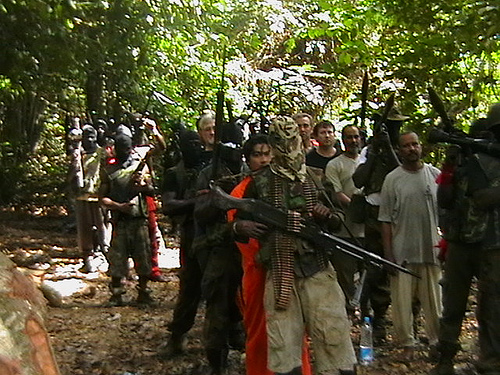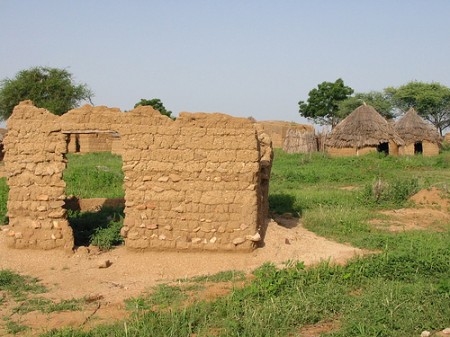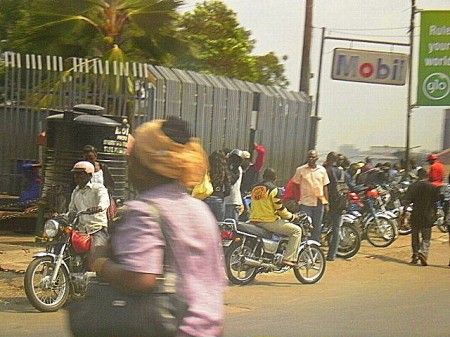
This blog is part of a series of contributions documenting time spent in southern Nigeria to attend a conference and gather data for the targeting energy infrastructure (TEI) project.
Monday morning, while sitting in my host office at the Institute for Dispute Resolution (IDR) – a NGO based in Ekpan, Nigeria (a community next to Warri) and headed by Innocent Adjenughure – a thunderous noise caught my attention. I paused as the word bomb came to mind. After all, I was sitting in the heart of the Niger Delta, where up until October 2009 when an amnesty deal was achieved, the resource rich region was wrought with militancy and criminality. The emergence of the Movement for the Emancipation of the Niger Delta (MEND), a militant umbrella group, in 2005/6 introduced an intensified campaign of violence aimed largely at the country’s oil and gas sector that crippled production by as much as 30 percent.
So I waited and listened. In the absence of emergency sirens or some type of notification, I shrugged, passing it off as an approaching storm.
What I didn’t realize was that nearby the post-amnesty dialogue “Restoring Hope in the Niger Delta”, initiated by the Vanguard Newspaper in Nigeria and sponsored by the federal government and the nine states in the Niger Delta region, was kicking off at the Delta State Government Annex building in Warri. In fact, Innocent and I were scheduled to attend this meeting but mistakenly thought that the program began the following day. So as prominent government officials and stakeholders began to gather just before 11:00, the first of 2 car bombs, planted by MEND and parked on the street outside of the compound, were remotely detonated. Shortly after, the second bomb went off. By noon, participants were fleeing the area in panic, numbers were injured and at least two civilians were reportedly killed.




